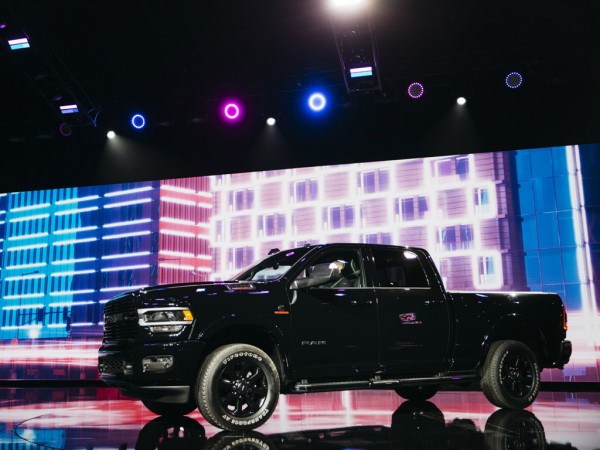The final bits of polish are being applied to chrome, steel and executives’ speeches as the North American International Auto Show gets underway in Detroit.
With U.S. auto sales poised to slip in 2019, carmakers are fielding a mix of models that’ll whet Americans’ voracious appetite for trucks and sport utility vehicles over sedans that were once fixtures of American driveways. They’re also feeling around for how future technologies are best put to use. Some early experiments, like Ford Motor Co.’s ride-sharing service Chariot, have already gone kaput.

Why the Wheels Came Off Ford’s Chariot (9:49 a.m.)
Ford decided to kill Chariot, its shuttle-based ride-sharing service, in part because there wasn’t a regulatory framework for it to continue, CEO Jim Hackett told reporters. The data gathered—particularly related to how people used the service to plan daily trips and communication with the cloud—will still feed into future autonomous-car designs, he said.
“The issue is that we were ahead of, really, policies that will make this a better business,” said Hackett, who ran Ford’s Smart Mobility unit before he was promoted to the automaker’s top job in 2017. “I’m very happy with what Chariot taught us and what the next evolution of the business is going to be. This is a pivot for us—a bunch of things have been birthed from the Chariot experience.”
The service will cease operations by the end of March, according to a company blog post last week. The Ford Smart Mobility subsidiary, formed in March 2016 and led by Hackett at that time, bought Chariot six months later as its first acquisition.
Toyota Warns—Again—of Tariff Impact (8:50 a.m.)
Toyota Motor Corp.’s head of North America is no fan of tariffs. Jim Lentz, the automaker’s chief executive officer for the region, warned on Bloomberg Television that the cost of models including the Kentucky-built Camry—the best-selling sedan in America—could give Americans sticker shock if the Trump administration follows through on the president’s threat to tax vehicle and parts imports. Higher material costs already are dragging on sales, he said.
This is a familiar refrain from Toyota. The company said in June that the Camry faced the potential for an $1,800 cost increase if the Commerce Department implemented 25 percent tariffs. The automaker also has expressed concern for its RAV4, the top-selling crossover, which is made in Canada and Japan, and has said it may halt imports of some models into the U.S.
Light-Duty Ram Brings Home Hardware (8:23 a.m.)
After outselling General Motors Co.’s Chevrolet Silverado in the fourth quarter, Fiat Chrysler Automobiles NV’s Ram now has more to brag about at the expense of its Detroit-based rival.
The Ram 1500 pickup was named North American Truck of the Year, beating Silverado and the GMC Sierra 1500. Fiat Chrysler has said it wants to overtake Silverado in sales by 2022.
Hyundai may be struggling in the U.S. sales ranks, but it’s finding some redemption in Detroit. The Genesis G70 and Hyundai Kona/Kona EV were named the top car and utility vehicles by the jury of auto journalists from the U.S. and Canada who vote on the honors.
Ram Takes Wraps Off New, Big Trucks (12:01 a.m.)
Fiat Chrysler was riding big momentum into this year’s show. It’s given GM a stiff challenge for the No. 2 spot among the top truck lines in the U.S. And it’s reinforcing the lineup with revamped heavy-duty versions of its pickups debuting here in Detroit.
Heavy-duty trucks are a hugely lucrative sub-segment of the truck market, from which Fiat Chrysler, GM and Ford haul in more than $90 billion in annual revenue. It’s also the part of the industry where capability is paramount, and Ram is boasting big numbers including towing capacity of 35,100 pounds. Ram will offer an air-suspension system with a mode that lowers the truck bed to ease the process of loading gear or hooking up a trailer.








